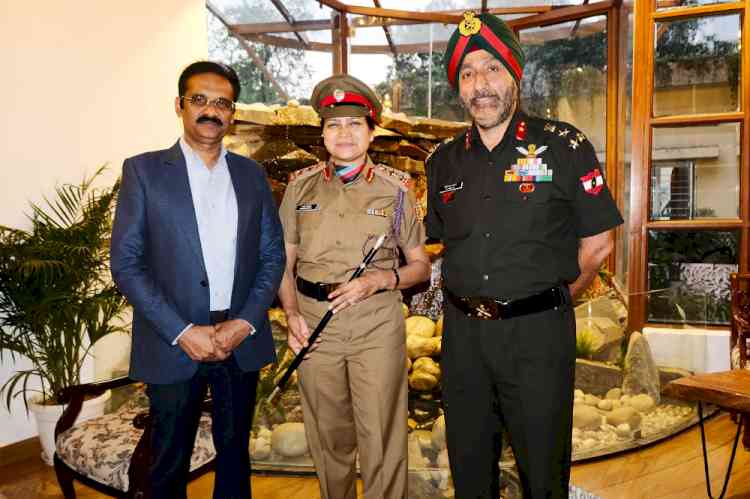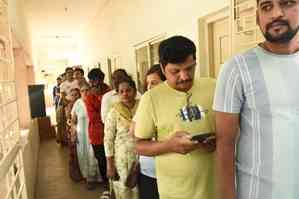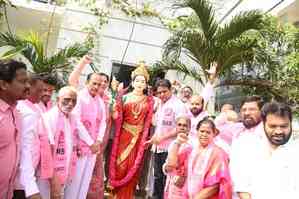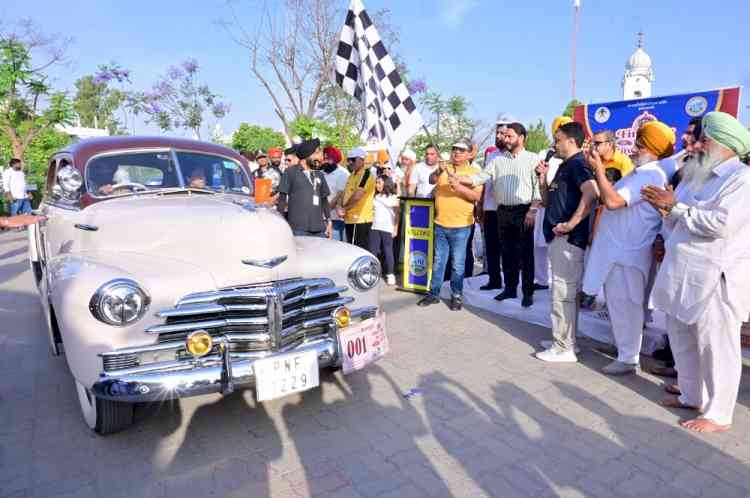Fortis Malar conducts Rare Epilepsy Surgery on a 15-year-old
Author(s): City Air NewsDoctors locate seizure focus in the depths of the brain of a Hyderabad girl Chennai, August 24, 2017: The Fortis Comprehensive Epilepsy Centre (FCEC) at Fortis Malar Hospital carried out a challenging surgery for...

Doctors locate seizure focus in the depths of the brain of a Hyderabad girl
Chennai, August 24, 2017: The Fortis Comprehensive Epilepsy Centre (FCEC) at Fortis Malar Hospital carried out a challenging surgery for drug-resistant epilepsy on 15 year-old Priya who was suffering from daily epileptic seizures. The surgery was performed by the team led by Dr Dinesh Nayak, Senior Consultant Neurologist & Epileptologist and Dr B.Ravimohan Rao Senior Consultant Neurosurgeon, along with Dr V.Sathish Kumar, Dr K.Lakshminarayanan and Dr K.Arul. Ms Priya had been having daily epileptic seizures for 5 years and the challenge was locating her seizure origin in her brain as earlier attempts elsewhere proved futile.The experienced neurosciences team decided to unravel this seizure focus and succeeded in curing her epilepsy.
Priya hailing from Hyderabad started having seizures at the age of 10. She was administered antiepileptic drugs and responded well, and she remained seizure-free for next 2 years, which prompted her treating physician to discontinue the drugs. The seizures, however, returned within a month of stopping the medication. These distressing seizures occurred several times a day and did not respond to a variety of antiepileptic medication. She underwent a series of complex tests in order to try and establish the seizure focus. These tests showed divergent results, and threw up multiple possible areas of seizure origin. At FCEC, Priya underwent a test called intracranial EEG monitoring which involves the study of electrical activity by directly placing electrodes over the brain surface.
During the first surgery, 56 electrodes (48-contact subdural grid and two 4-contact strips) were placed over the regions of the brain that were thought to harbor the seizure focus as determined by the various tests. The grid was placed over the frontal and parietal cortex, while the 2 strips were positioned deep in between the two halves (hemispheres) of the brain. Priya’s seizures were recorded from deep inside the middle of the brain on her right side, an area called the mid-cingulate cortex, which is 3 to 4 cms below the brain surface. Dr B. Ravimohan Rao and Dr K. Arul performed the second stage of the operation and they expertly reached the deep-seated area through a narrow corridor in the middle of the brain and resected 2 cm of brain tissue responsible for her seizures. Ever since Priya has remained seizure free.
“I felt drowsy throughout the day after my seizures, as I used to get them only in the night. I love swimming and rides but I could not do any physical activities. But after the surgery I am energetic throughout the day and am very excited, because in 6 months I can start swimming and go for rides” said Priya
Dr. Dinesh Nayak, Senior Consultant Neurologist & Epileptologist, Fortis Malar Hospital, Chennai said “One of the biggest challenges in epilepsy surgery is the accurate identification of the seizure focus or network. This requires judicious use of a combination of tests like video-EEG, MRI, PET-CT, ictal SPECT, and more recently, MEG. Not all will require all these tests. It is only when the MRI fails to show a structural abnormality that many of the ancillary tests are done. We look for concordance of the results of these tests to a single area in the brain. If there is concordance, we can proceed with surgery. With Priya we had to perform a more invasive evaluation with intracranial EEG monitoring because her MRI was normal, and all the other tests showed discordant results, with several candidate sites as possible seizure focus.”
Dr K. Lakshminarayanan, Pediatric Epileptologist, Fortis Malar Hospital said “Epilepsy patients have traumatic experience during their seizures. It affects their personality, lowers their confidence and it makes daily life very difficult. The key to a successful epilepsy surgery programme is team work, and this is the main strength of our Fortis Comprehensive Epilepsy Centre.”
Dr V. Sathish Kumar, Neurologist and Stroke Specialist, Fortis Malar Hospital said “Priya had five to six seizures daily, which disturbed her sleep and drained her energy and to live like that is unimaginable. We are happy for Priya that she has her normal life back. ”
“We consulted various doctors since 2010 onwards till 2016 but there was no relief at all. Then my husband’s friend referred us to the experienced Neuro team at Fortis Malar. After talking with Dr Dinesh Nayak, all my fears vanished. Dr Dinesh Nayak was very patient and he always reassured that everything will be fine. We are very grateful to him. My daughter is happy today and is able to lead a normal life. I still keep calling him for any doubts. He is always kind to us” said Priya’s mother.

 cityairnews
cityairnews 
















